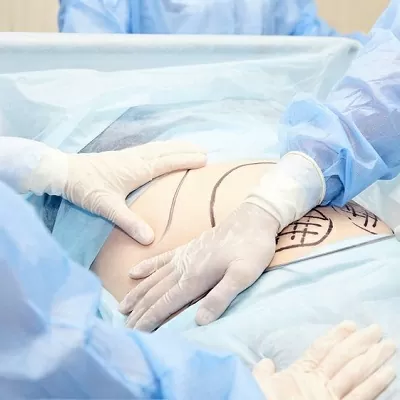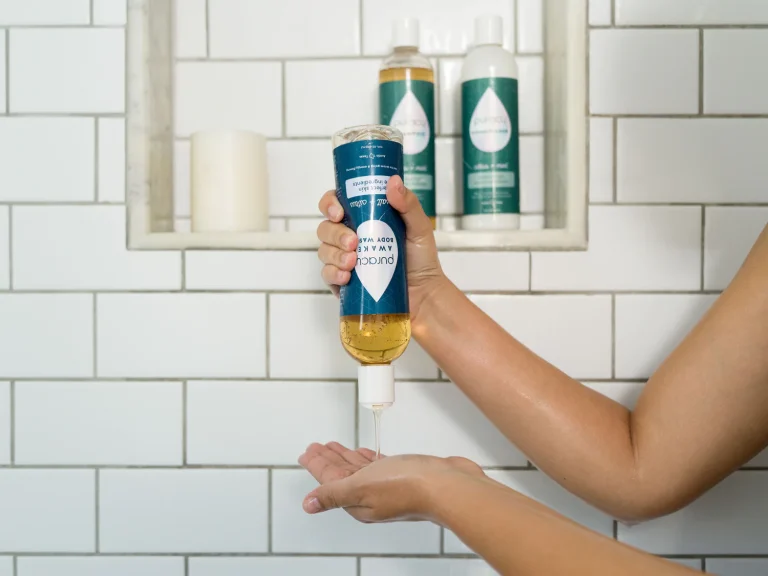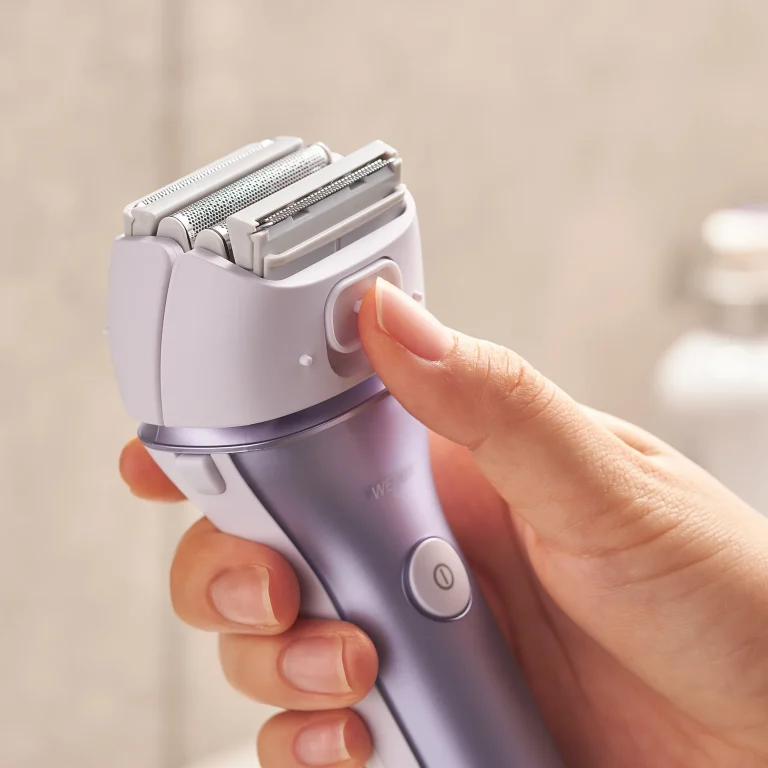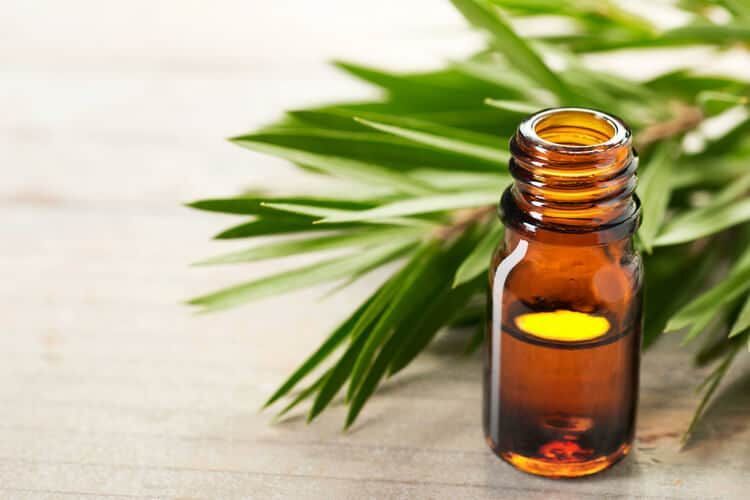Is Liposuction Haram or Halal In Islam?
Liposuction is a popular cosmetic surgery procedure that removes fat from different parts of the body to slim and reshape specific areas. As this surgery is often pursued for aesthetic reasons, many Muslims question whether undergoing liposuction aligns with Islamic principles.
Liposuction is generally considered Haram (forbidden) in Islam. However, in certain health circumstances it may be permissible as a last resort when no other solution exists. Understanding the principles outlined in the Quran and Hadiths helps provide guidance on when liposuction could be Halal (permissible).
Allah Forbids Changing One’s Personal Description
Contents
- Allah Forbids Changing One’s Personal Description
- Prohibition on Plastic Surgery for Beautification
- Exceptions for Plastic Surgery After Injuries
- Liposuction Considered Permissible Only in Specific Medical Cases
- Healthy Lifestyle Prevents Excess Fat Accumulation
- Liposuction Considered Haram Unless All Options Exhausted
- When Liposuction May Be Deemed Permissible
- Factors Creating Necessity for Liposuction
- Islamic Principles Encourage Protecting Health
- Islamic Dietary Guidelines Promote Health
- Mental and Physical Disorders May Warrant Liposuction
- Conclusion:
The Quran teaches that Allah created human beings in the best form. As per an authentic Hadith, Prophet Muhammad prohibited altering one’s appearance, as Allah perfected his creations.
“Verily, Allah is beautiful and loves beauty.” [Sahih Muslim]
Plastic surgery solely for beautification goes against the teachings of Islam, as it reflects dissatisfaction with Allah’s creation. The exception is reconstructive surgery to restore appearance after an injury or accident.
Prohibition on Plastic Surgery for Beautification
Besides reconstructive purposes, the Quran and Hadiths prohibit altering physical attributes simply for perceived improvements in beauty.
Prophet Muhammad specifically cursed those who artificially change Allah’s creations for cosmetic reasons. Imams have ruled cosmetic procedures Haram except to correct genuine deformities.
Plastic surgery to enlarge body parts or purely enhance beauty are therefore deemed impermissible in Islam. Muslims are encouraged to appreciate the form Allah granted, not surgically alter it based on modern beauty standards.
Exceptions for Plastic Surgery After Injuries
Reconstructive procedures, however, are generally deemed permissible in Islam. These include plastic surgery to restore appearance after accidents and return body parts to a normal functional state.
Examples include repairing injuries from burns, dog bites, car accidents and trauma. These procedures align with restoring Allah’s creation to its original form.
Liposuction Considered Permissible Only in Specific Medical Cases

When it comes to liposuction specifically, Islamic scholars differ in opinion on whether it is entirely prohibited or may be permissible under certain health circumstances.
The consensus is liposuction is only allowed when excess fat poses a serious health risk, and no other solution exists. This makes liposuction an option of last resort for Muslims.
Liposuction as a Last Resort for Extreme Cases
- Liposuction may be Halal if excess fat is causing obesity-related diseases unresponsive to diet and exercise.
- It should be considered a last resort when obesity threatens health and impacting quality of life.
- Permissibility depends on individual health factors and exhausting other options first.
Rare Need for Liposuction Due to Healthy Lifestyle
- The Muslim lifestyle promotes health and moderation, reducing the need for liposuction.
- Emphasis on physical activity and nutritious Halal foods prevent fat accumulation.
- Muslims suffer lower obesity rates than the general population.
- For most Muslims, a healthy lifestyle makes liposuction unnecessary.
Choosing Qualified Doctors Is Essential
- Undergoing liposuction is a major procedure and poses health risks if improperly performed.
- It is important to research qualifications and only choose an accredited, licensed plastic surgeon.
- In Islam, protecting one’s health is an obligation. Ensuring proper expertise reduces liposuction risks.
Healthy Lifestyle Prevents Excess Fat Accumulation
Muslims are encouraged to maintain a healthy lifestyle to avoid reaching a point where liposuction is considered an option. Prevention helps adhere to religious principles.
Healthy Eating and Exercise Habits
- Islam promotes a balanced diet, avoiding excess, and regular physical activity.
- A nutritious, Halal diet and exercise regimen prevents unhealthy weight gain.
- Development of good lifestyle habits align with religious teachings on health.
Lower Obesity Rates Among Muslims
- Obesity is a growing health epidemic, but affects the Muslim population far less than the general Western population.
- Islamic guidelines prevent overindulgence in food and emphasize moderation.
- Muslims exhibit higher levels of health consciousness in diet and exercise.
Liposuction Considered Haram Unless All Options Exhausted
Islamic scholars concur liposuction performed only for cosmetic reasons, without exhausting all other weight loss methods, is prohibited in Islam.
Exhausting Alternative Methods First
- Liposuction cannot be a Muslim’s first choice for losing excess fat.
- They must first rigorously follow medical advice for diet, nutrition, exercise and lifestyle changes.
- Only after alternatives fail repeatedly may liposuction be considered permissible.
Non-Invasive Options First
- Safer options like diet modifications, gym routines, behavioral changes and non-surgical procedures should be attempted before liposuction.
- Liposuction’s health risks make it a last option, so non-invasive methods must be explored thoroughly first.
When Liposuction May Be Deemed Permissible
If all other recommended methods and treatments fail to improve obesity-related health problems, liposuction may become a permissible option.
After Thoroughly Exploring Alternatives
- Only after exhausting safer options under medical guidance can elective liposuction be Halal.
- The decision must involve thorough research and evaluation of alternatives.
- Balance between necessity and Islamic principles is required.
Urgent Health Risks May Permit Liposuction
In rare cases where excess fat urgently endangers health, liposuction may be permissible even if other options exist.
- Examples include morbid obesity risking diabetes, heart disease, high blood pressure or joint problems.
- If delaying liposuction puts health in serious jeopardy, necessity may outweigh standard rulings.
- A credible medical opinion validating this urgency is required.
Factors Creating Necessity for Liposuction
Though improper for solely cosmetic reasons, certain factors may create legitimate medical necessity making liposuction Halal.
Women Face Higher Necessity
- Women naturally carry more fat in the thighs, hips and rear due to differences in physiology.
- Weight gain in women is often disproportionate to these areas.
- For some women, liposuction may be the only way to remove this fat.
Joint and Tendon Issues
- Excess weight around the thighs and knees can cause joint problems and limited mobility.
- Carrying extra weight exacerbates tendon inflammation and ruptures.
- Removing fat via liposuction can relieve these health issues when other methods fail.
Islamic Principles Encourage Protecting Health

Islam obligates Muslims to care for their physical health, making liposuction potentially permissible when health dictates necessity.
Obligation to Preserve Health
- Muslims must care for their health as it is an Amanah (trust) from Allah. Letting health deteriorate without reason goes against this.
- If excess fat critically threatens health, Islam encourages taking action to restore well-being.
Quran Emphasizes Personal Health
- The Quran teaches that Muslims are guardians of their own health and Quran supports anything needed to restore health.
- Scholars quote “God loves when any of you is sick, to take the proper medicine till he is cured.”
- Liposuction may thus align with Quranic principles if urgently needed to treat obesity.
Islamic Dietary Guidelines Promote Health
Islamic dietary regulations and the allowance of only Halal foods aim to promote well-being and prevent disease when followed devotedly.
Halal Foods Nourish the Body
- Allah prescribes Halal foods that provide proper nourishment to the body and support good health.
- Following Quranic nutrition guidelines prevents disorders resulting from unhealthy diets.
- The body is a gift from Allah and should be fueled properly.
Avoiding Haram Foods Protects Health
- Certain foods like pork are deemed Haram as they may endanger health.
- Consuming only permitted Halal foods serves as preventative healthcare.
- Health risks from prohibited foods are counter to Islam’s emphasis on wellness.
Mental and Physical Disorders May Warrant Liposuction
In some cases, liposuction may be necessary not just for physical but also mental health reasons.
Link Between Mental Health and Obesity
- Studies reveal connections between obesity and conditions like depression, anxiety, low self-esteem and eating disorders.
- Severely overweight individuals may undergo liposuction to support mental health.
- Islamic ethics recognize the importance of mental well-being.
Health Risks of High Cholesterol and Triglycerides
- Being severely overweight commonly leads to elevated cholesterol and triglycerides.
- This places individuals at high risk for heart disease, heart attacks and strokes.
- Removal of fat by liposuction can help restore these levels to prevent future health events.
Conclusion:
While deemed impermissible for purely cosmetic reasons, liposuction can be Halal in Islam if it becomes truly necessary for medical purposes. Plastic surgery to alter natural form is generally prohibited, except to restore injuries. However, liposuction may be allowed as a final resort if obesity seriously threatens health.
Muslims have a personal responsibility to maintain a healthy lifestyle aligned with religious teachings. This prevents reaching an extreme point where liposuction becomes necessary. If non-invasive weight loss alternatives fail, liposuction may become permissible based on individual circumstances. Evaluating true necessity and exhausting all other options first is crucial before considering this permanent procedure.
Overall, Islam favors prevention through healthy habits over surgical interventions. But when health is critically endangered, liposuction can be deemed permissible in order to restore well-being. The procedure must be approached cautiously, only utilizing it once less invasive methods have repeatedly failed. With sound guidance from accredited doctors and principles of Islam in mind, Muslims can determine if liposuction is the right choice for their health needs.

Founded by Sophia Rodriguez, IGXO Cosmetics is a PETA-certified, cruelty-free, and vegan makeup brand.





